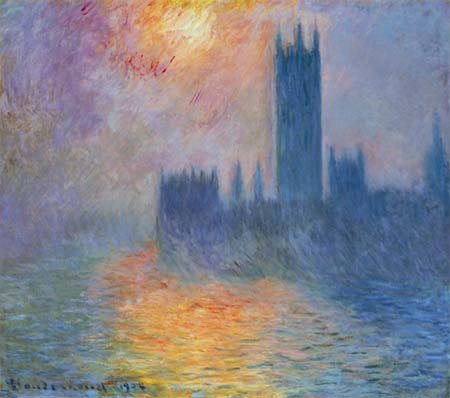The concerns of the rich are the concerns of all, but the benefits and consequences of the behavior of the rich aren't evenly spread. Considering the recent economic crisis, it can be argued that the rich benefited from their behavior while the poor reaped the consequences. It specifically makes me think back to a book I read, Germinal, by Emile Zola.
The story within this book deals with the lives of the poor working class that live in the area of the mines, toiling away underground in order to at least put food on the table for their family, while the rich become even richer off of all the poor people's work. Marxism comes into play here with the character of Etienne, who believes that the middle class need to be removed so that the working class can have their fair share and would no longer have to suffer the way they do. With the character of Etienne, Marxism comes off as almost being too ideal, like some kind of utopia that can be easily achieved if one only sets their mind to it. I think this is more or less the fault of the character for being naive in the way he sees things.
At the centre was still the idea put forward by Karl Marx: capital was the result of theft, and labour had the duty and the right to recover this stolen wealth. As to putting this into practice, Etienne had at first been seduced, like Proudhon, by the attractions of mutual credit, if one vast clearing bank that would cut out all the middlemen; then it hand been Lassalle's idea of co-operative societies, funded by the State, which would gradually transform the earth into one great big industrial city, and he had been widly in favour of this until the day he was finally put off by the problem of controls; and recently he had been coming round to collectivism, which called for the means of production to be returned into the ownership of the collective. But this was all still somewhat vague, and he couldn't quite see how to achieve this new goal, prevented as he was by scruples of humanity and common sense from enjouing the fanatic's ability to advance ideas with uncompromising convition. For the moment his line was simply that what they had to do first was to take power. Afterwards they'd see. (242)
I think that Marxism wouldn't really work regardless, though. You see throughout the book that even characters of the poor working class constantly strive to step on their comrades necks in order to get ahead, and I genuinely think it's a reflection of human behavior in the real world. You'd need a considerable amount of laws to keep everyone even and make sure that no one thought about finding a way to get ahead of their fellow people. I know many would argue against this, but I do believe it's slightly part of human nature to be competitive. I should explain that I think in a much smaller group, a set of people could work quite fantastically together to create a little village (or what have you) into something that resembles Marxism, but considering how large the world is, and how it's getting bigger by the second, I don't think something like that can be maintained on such a scale. In the larger scale, in other words, systems like Marxism just don't work. It's a shame, but I see the example of this in the way the United States is currently run. If we were incredibly smaller, then I'd believe much more strongly in the ideals of capitalism.
Works Cited
Zola, Emile. Germinal. England: Penguin Books Ltd. 1885
